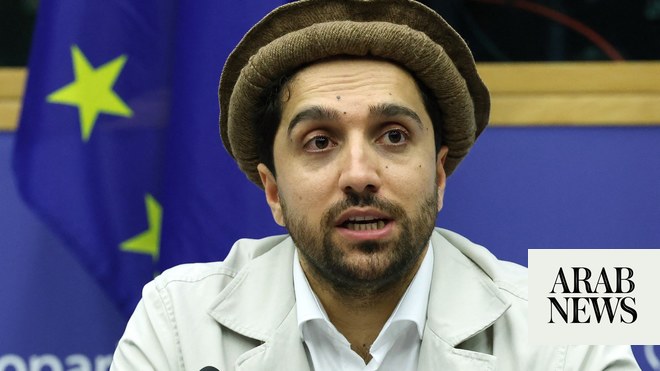
As opposed to the lofty, but less practical, academic view, anyone actually involved in real-world politics unerringly knows that people (as much as historical forces) make policy. In this case, understanding the inside story of the firing of US National Security Adviser John Bolton is a vital piece of the puzzle in determining what the US is likely to do about ending its longest war: The 18-year trauma in Afghanistan.
Sometimes, having first-hand knowledge of how Washington works (or doesn’t) pays off in all sorts of unexpected ways. I have (peripherally) known Bolton, Donald Trump’s ultra-hawkish outgoing national security adviser, since we crossed swords over the Iraq invasion in 2003. Then, as now, Bolton had one answer to every question on American foreign policymaking: Armed military might, and sustaining American military operations however badly they were going.
Trump has come to understand that Bolton is a one-note analytical orchestra. As Axios reported, the president wryly noted during one Oval Office meeting: “John has never seen a war he doesn’t like.”
This is what makes his firing as predictable as it is important. For, despite unthinking accusations to the contrary, Trump is far removed from his caricature as a standard-issue right-wing warmonger as it is possible to be. Trump — overturning the hawkish neoconservative consensus in the Republican Party (of which Bolton was a strong proponent) that had predominated under the administration of George W. Bush — was elected by a very different anti-interventionist Jacksonian base, keen to avoid wars of choice and the costly social engineering that went with the nation-building so popular (among both parties) in the heyday of the conflicts in Iraq and Afghanistan.
Because ideology matters, this meant Bolton — recently an advocate of attacking North Korea, threatening the wobbling Venezuelan regime with force, and determined to stay in Afghanistan seemingly forever — was never going to be a good fit in a Trump administration determined to end promiscuous interventions that frittered away American strength even as a new Cold War contest with China beckoned. The wonder of it, given these unbridgeable intellectual differences, was that Bolton lasted so long.
The real story is not the failure of the Camp David talks, but the beginning of the US winding down of the seemingly endless war in Afghanistan.
Dr. John C. Hulsman
For, in jettisoning Bolton, Trump has remained true to his basic noninterventionist Jacksonian roots. The straw that broke the camel’s back proved to be the astonishing peace talk proposal that Trump offered to broker with the Taliban at Camp David, just days before the anniversary of 9/11. Bolton, horrified at crafting a deal with a mortal American enemy, vigorously opposed Trump’s pet plan. The president wanted to stage a media spectacular, claiming credit for a year’s-worth of painstaking diplomacy spearheaded by his envoy for Afghanistan, Zalmay Khalilzad. With North Korea talks in stalemate, and with the Sino-American trade war in full swing, the White House desperately needs a success to sustain its thoroughly different foreign policy.
Despite the Camp David talks falling apart, it is still odds-on that Trump will reach at least a partial agreement to draw down American forces from their present level of 15,000 to about 8,500 troops by the time of the November 2020 presidential election. There are two basic reasons for this, ranging from high strategic principle to low political cunning.
Strategically, part of Trump’s populist appeal is to denigrate the foreign policy establishment, of which former Secretary of State Hillary Clinton is a charter member, for its truly appalling record. Be it failed wars in Iraq and Afghanistan or the American establishment’s failure to protect US workers from unfair trade practices, the president has made a powerful argument that the American elite has failed in the post-Cold War world.
The 2016 presidential election saw this common populist narrative effectively advanced by Bernie Sanders on the left and Trump on the right. It is part of the core of what Trump thinks and why he is popular. In Afghanistan, an 18-year war with no end in sight is exhibit A for Trump as to what ails the US foreign policy establishment. In terms of politics, even cutting the partial deal of a rough halving of American forces in return for the Taliban promising not to allow attacks on America or its forces from Afghan soil would amount to a major win for the president.
A point Trump’s virulent critics have missed is that, more than most presidents, he has done all he can to keep his foreign policy campaign promises to his very loyal base. In true Jacksonian form, the president has refrained from embroiling the US in any more wars of choice. He has taken the promised tough line with China and chided America’s allies to do more in terms of paying for their own defense.
While a drawdown in Afghanistan does not entirely pull the plug on the war, it is an intellectual down payment the Trump White House is making to its base, signaling he is winding down conflict there, just as he promised to. So ignore today’s headlines; the real story here is not the failure of the Camp David talks, but the beginning of the US winding down of the seemingly endless war in Afghanistan.












